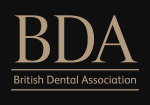
Conditions
Gum Infections and Bleeding Gums
Gum bleeding is a sign of several possible causes, and some are more serious than others.

About This Condition
Understanding these possibilities is the first step in narrowing down why your gums are bleeding and what you can do to solve the issue. Here are some of the possible reasons your gums could be bleeding:
1. Gingivitis
Poor oral hygiene can lead to plaque on your teeth. Plaque consists of bacteria that stick to your teeth as a film, leading to cavities and other health concerns. Over time, plaque on the gum line can lead to gingivitis, a mild form of gum disease. Some symptoms of gingivitis include swollen, receding or bleeding gums.
2. Pregnancy Gingivitis
Pregnant women may experience high rates of gingivitis. This increased rate of gingivitis is a result of hormonal changes during pregnancy. The body produces an exaggerated response to the presence of plaque on the gumline, leading to swollen, painful or bleeding gums.
3. Medications
Some medications can lead to an increased risk of bleeding gums. Many over-the-counter medications act as blood thinners, making it easier for your gums to bleed during everyday situations such as brushing your teeth or flossing. Some prescriptions can also include bleeding gums as a possible side effect.
4. Changing Your Flossing Routine
You may have heard from your dentist that your gums would bleed when you start flossing. This type of gum bleeding is normal, as bleeding is your gums’ response to the new stimulation of flossing. As you continue flossing, your gums will become healthier and resist bleeding when you floss.
5. Toothbrush Bristles
The type of toothbrush bristles you choose can influence your gum health. We recommend soft bristles for cleaning your teeth, as this style is gentle on your gums while still being effective at removing plaque. Upgrading to firm bristles could be too rough on your gums, causing bleeding
6. Poor Diet and Vitamin Deficiencies
Your diet plays a significant role in your dental health. Sugary, starchy foods contribute to plaque buildup, which can lead to cavities and bleeding gums. You can enjoy sweets and other indulgences on occasion, but you should keep these foods to a minimum and brush your teeth soon after eating them.
Bleeding gums can also be a result of vitamin deficiencies. Eating whole foods like vegetables and fruits will help you consume more essential vitamins and minerals that could reduce your chances of bleeding gums.
7. Poor Oral Hygiene Habits
Plaque buildup on the gum line can lead to gingivitis and bleeding gums.
Every dentist recommends proper dental care as the best way to invest in a healthy smile. Brush your teeth twice a day and floss once per day to prevent the buildup of plaque on your teeth. Combine that with routine professional cleanings with your dentists, and you can maintain a healthier smile and less gum bleeding.
8. Stress
If you are experiencing high levels of stress in your life, you could be at a greater risk of suffering from dental health issues, including bleeding gums.
Many individuals find it easier to skip brushing their teeth and eat more unhealthy foods when they are under significant amounts of stress. These decisions can contribute to bleeding gums.
Stress can also lower the body’s ability to fight infections, including periodontal disease. Do all you can to limit stress in your life, including deep breathing exercises, meditation and other stress-relieving methods. Be sure to continue eating well and taking care of your teeth as you reduce your stress level
9. Misaligned Bite
Bleeding gums could be the result of a misaligned bite. If you have a misaligned bite, you could be putting excess pressure on certain parts of your mouth when you bite down, clench or grind your teeth. This uneven pressure can have negative impacts on affected areas, leading to tissue deterioration, gum recession and gum bleeding.
10. Smoking or Vaping
Smoking and vaping can both cause one’s dental health to decline, contributing to bleeding gums. The positive results that quitting could have on your dental and overall health are worth it.











